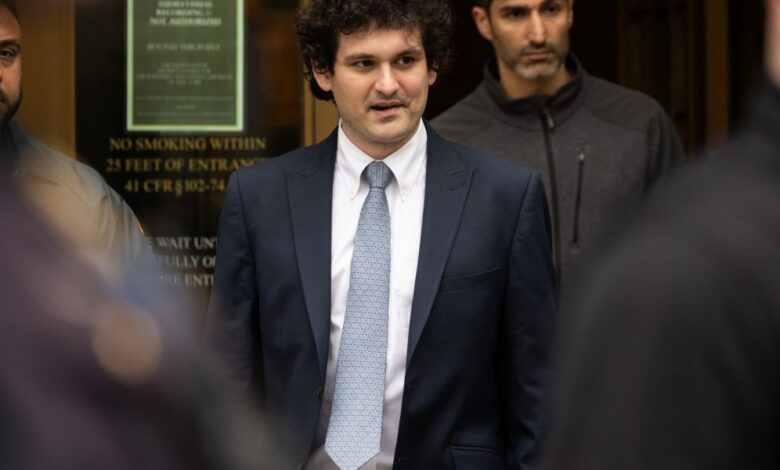Even in his final hour, Sam Bankman-Fried insisted FTX was a crisis of liquidity—not outright fraud


Standing before Judge Lewis Kaplan on Thursday morning in a Manhattan courtroom to hear his sentence, Sam Bankman-Fried remained resolute that the implosion of cryptocurrency exchange FTX was due to a “liquidity crunch” and mismanagement—not financial fraud.
In the moments before receiving his 25-year sentence, to be served in a medium-security facility in the Bay Area, Bankman-Fried was willing to admit responsibility for poor management but dodged any recognition of deceit.
Standing in beige overalls with two FBI guards close by, Bankman-Fried insisted that victims “deserve to get back the actual assets at the value they are worth now…and there are enough assets there. There always [were], not just because of the value going up—although that didn’t hurt.”
“It looks like customers will hopefully be paid in full,” he added.
The disgraced cofounder refused to acknowledge stolen losses, instead framing the bankruptcy as a case of money simply being tied up in assets. At this moment, from the sidelines, the crypto influencer BitBoy could be seen shaking his head in dismay.
Thanks to the diligent cobbling together of assets under FTX’s caretaker CEO, John J. Ray III, who’s helped recover some $7 billion in assets so far, and favorable market conditions that recently have pushed skyward the prices of a number of cryptocurrencies, it’s looking like FTX creditors indeed might be made whole.
But this by no means proves the FTX implosion was simply due to a “liquidity crunch”—a point hammered home both by Kaplan and the prosecution, with the latter citing losses of over $11 billion in customer assets and investor funds.
“Sam stole over $8 billion. This was not a liquidity crisis or lack of oversight, but theft,” Nicolas Roos, an assistant U.S. attorney, told the court.
Kaplan noted that while Bankman-Fried admitted he “f****d up,” there was “never a word of remorse for the commissioning of terrible crimes” in his final words.
Responding to Bankman-Fried’s closing remarks, Roos continued to probe him about the apparent lack of responsibility for the actual wrongs committed: lying and theft. Roos also added that just because the former CEO didn’t use investor funds exclusively on items like flashy sports cars but instead on risky investments, that doesn’t indicate an absence of greed, rebutting arguments laid out by the defense attorney Mark Mukasey, who repeatedly referred to his client as a “beautiful puzzle.”
Roos pointed out that while Bankman-Fried may not have “looked customers in the eyes” like Bernie Madoff did, this was due to technological advances; he proverbially looked at them head-on through tweets and marketing campaigns.
‘His name is pretty much mud’
In Kaplan’s closing remarks, his resounding sentiment was one of little sympathy for Bankman-Fried, to the extent that it looked at one point like the former CEO might receive closer to the 40 to 50 years recommended by federal prosecutors.
“His name is pretty much mud around the world,” Kaplan said, accusing Bankman-Fried of acting evasively, dodging questions, and responding in a hair-splitting manner. “In 30 years, I’ve never seen a performance like that.”
Kaplan also refuted the defense’s claims that their client intended to act altruistically: “He wanted to be a hugely political influence in his country.” Indeed, Bankman-Fried spent over $93 million in political donations and even once said there was a 5% chance he would one day be president.
But from Kaplan’s closing statements, what appeared to strike him most was Bankman-Fried’s commitment to act upon expected value, instead of morality. He cited a comment he reportedly made to Alameda Research’s former CEO, Caroline Ellison—with whom he was romantically involved—that if there was a coin to be flipped where the outcome was either total world destruction or the chance to make the world twice as good, it would be a risk he was willing to take. This, Kaplan said, makes him an intrinsically dangerous person.
“There is a risk he could do something very bad in the future,” the judge added, “and that is not a trivial risk.”
Source link




